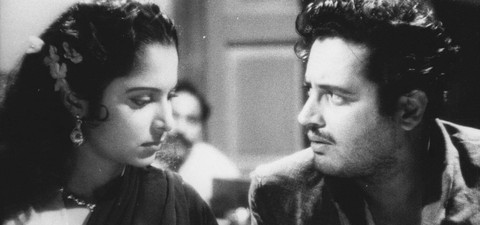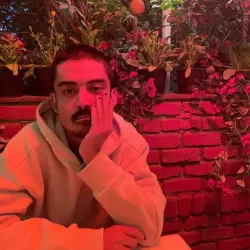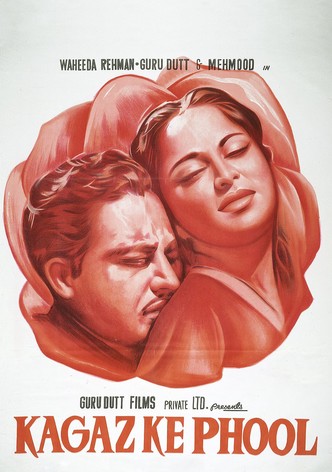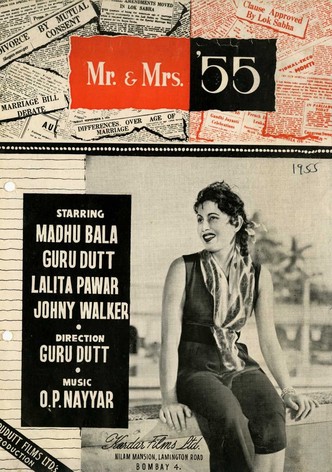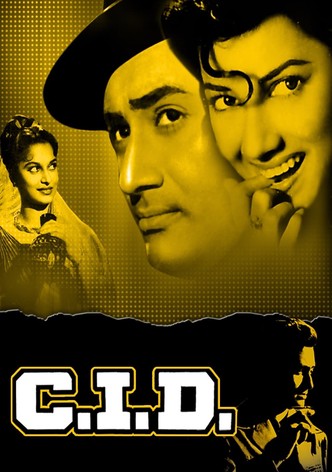Vasanth Kumar Shivshankar Padukone is known better among Bollywood audiences as Guru Dutt, a stage name he carried as both an exceptional actor and filmmaker. While his films might not have fared well at the box-office and his broken heroes lacked the charm of Dutt’s contemporaries, films like Pyaasa and Kaagaz Ke Phool have endured as cult favourites in Hindi cinema.
Here’s a look at his short-lived but iconic career.
Early beginnings with dance
In the 1940s, a young Dutt was a bright dancer of Uday Shankar's School of Dancing and Choreography in Almora, Rajasthan. But after striking a romance with the company’s leading lady, Dutt had to part ways and settle for the job of a telephone operator instead.
A Man of Many Talents
Unsatisfied with his day job, Dutt set out to Bombay like many other aspiring actors. A three-year contract with Prabhat Studios allowed him to prove his acting prowess in minor character roles, use his choreography knowledge in a few dance numbers, and make influential friends like Bollywood’s “evergreen star” Dev Anand.
Guru Dutt and Dev Anand: Friendship for the Ages
Dutt continued to work under more directors but his breakthrough came in the 1950s, thanks to former friend (and by now a rising star) Dev Anand coming to his rescue. With Anand intent on setting up his own production company Navketan, he reminded Dutt of a promise they had made during their time with Prabhat Studios. Dutt had agreed that if he were to direct a movie, Anand would be the hero. Anand conversely promised that if he were to ever produce a movie, Dutt would be the director.
The rest, as they say, is history.
Baazi marked Dutt’s directorial debut, a stylish crime noir starring Anand. A year later, Dutt featured Anand yet again in his sophomore noir Jaal. These movies redefined the noir genre for Bollywood with sharp visuals and morally gray characters. Jaal, in fact, is regarded as perhaps the first Bollywood film with an antihero.
Guru Dutt, the Actor
Starting with the swords-and-sandal action epic Baaz, Dutt decided to cast himself as lead while also sitting on the director’s chair. Baaz was just the tip of the iceberg as he went on to play more emotionally compelling characters in his career. Known for his emotive performances, Dutt's on-screen presence was magnetic, drawing audiences into the narratives he inhabited. Roles like playing an existential poet in Pyaasa and an ambitious film director in Kaagaz Ke Phool showcased his ability to portray complex characters with depth and nuance, setting him apart from his contemporaries.
Guru Dutt, the Director
It was Guru Dutt's transition to filmmaking that truly defined his legacy. A prominent case in point is Kaagaz Ke Phool, Guru Dutt employed innovative filmmaking techniques, such as flashbacks and symbolism, to narrate the tragic tale of a film director's rise and fall. Despite facing commercial failure upon its release, the film has since gained a cult following for its cinematic brilliance and thematic richness. Close-up shots, melancholic stories, and playing around with lighting was previously unknown in Indian black-and-white cinema.
Why is Pyaasa Guru Dutt’s best movie?
Pyaasa was a game-changer for Bollywood as it delved into the existential crisis of a poet in a materialistic world. The film's exploration of societal values and the artist's struggle for recognition resonated deeply with audiences, earning it critical acclaim. Also offering a powerhouse performance from Waheeda Rahman in her first lead role, SD Burman’s music and Mohammed Raffi’s heartbroken ballads only add further to the film’s immortality.
Where can you stream Guru Dutt’s filmography?
Guru Dutt’s eight films as director and many more as an actor, can mostly be accessed on Prime Video and Vi Movies.

